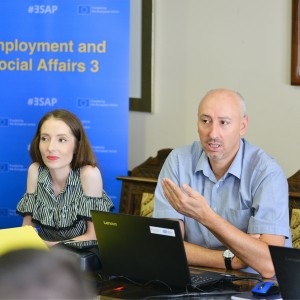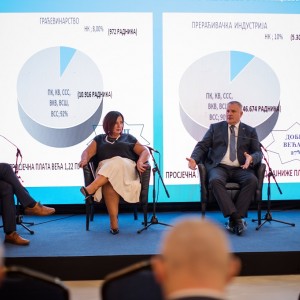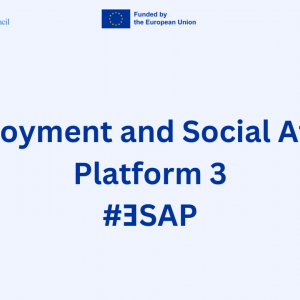RCC ESAP 2: Greater engagement of social partners in tackling undeclared work in the Western Balkans is much needed, authorities and social partners agree

Webinar: Western Balkan Network tackling undeclared work convenes to explore the scope for greater cooperation between enforcement authorities and social partners

Webinar “Improving Social Partner Involvement in Tackling Undeclared Work” in the Western Balkans, 19 April 2021 (Photo: RCC/ESAP2)
Webinar “Improving Social Partner Involvement in Tackling Undeclared Work” in the Western Balkans held today under RCC-implemented, EU-funded ESAP 2 project
Sarajevo – “The Regional Cooperation Council’s (RCC) Employment and Social Affairs Platform 2 (ESAP 2) project aims to support regional cooperation among the Western Balkan (WB) economies in transforming undeclared work into declared work, pursuing a holistic integrated strategic approach, akin to that of the European Union (EU). Enhanced cooperation between enforcement authorities and social partners in tackling challenges of undeclared work in our societies is of importance” said Amira Ramhorst, Team Leader of ESAP 2 to project at the webinar of the Western Balkan Network Tackling Undeclared Work with enforcement authorities and representatives of social partners from the WB region held online today.
“ESAP 2 project conducted a survey of social partners in all six Western Balkan economies at the end of 2020, which revealed that social partners want to engage more fully in tackling undeclared work, and are starting to adopt cooperation with public authorities as one of their strategic objectives.”
Professor Colin Williams, ESAP 2 project’s Lead Expert on undeclared work explained that the survey of social partners examined how they viewed their level of involvement in the body/bodies tackling undeclared work.
“No social partners say there is full tripartite agreement and consultation on sector-specific inspection targets, information exchange and awareness-raising, and only one (in North Macedonia) that there is tripartite consultation on either sector-specific inspection targets, information exchange or awareness-raising. A few say there is regular engagement in joint actions (e.g., information and awareness-raising). Most social partners state that there is only irregular ad hoc involvement with the authorities. A few social partners assert that there is no consultation.”
Furthermore, the survey finds that many social partners have also started to identify that they wish to develop relationships with enforcement authorities in order to tackle undeclared work. To develop cooperation with them, most social partners in Albania, Montenegro, and Serbia have allocated staff to the task of building partnerships, the problems in partnership building are being addressed and solutions pursued. However, this is not yet the case in Bosnia and Herzegovina, Kosovo* and North Macedonia. Neither do most social partners have transparent agreements with state authorities that are evaluated and the results shared.
Turning to the range of policy measures used by social partners to tackle undeclared work, 59% of social partners in the 2020 survey believe that they use a limited or very limited range of tools. Indeed, all social partners believe they need to improve the range of policy measures used.
This webinar was a unique opportunity for both enforcement authorities and social partners to discuss and share understanding of the major challenges they face in pursuing greater cooperation and provide tips for other Western Balkan economies on how these challenges might be addressed. It was also an excellent chance to explore the scope for greater cooperation and to share learning on the type of initiatives that social partners can pursue to protect legitimate businesses and workers and increase their membership base by transforming undeclared work into declared work.
Around 40 participants from the Ministries of Labour, Labour Inspectorates, Tax Authorities and social partners (representatives of trade unions and employers’ associations) across the Western Balkans exchanged views and contributed to peer learning by answering the key discussion topics: identifying major challenges in developing greater cooperation; ways to improve the cooperation between social partners and authorities; and named at least one practical step that could be undertaken to improve cooperation.
The common conclusion of the webinar was that there was a great need to improve the involvement of social partners in order to find the best way to tackle undeclared work and transform it into declared work thus decreasing high rates of informal employment in the Western Balkans that ranges from 18-30%.





